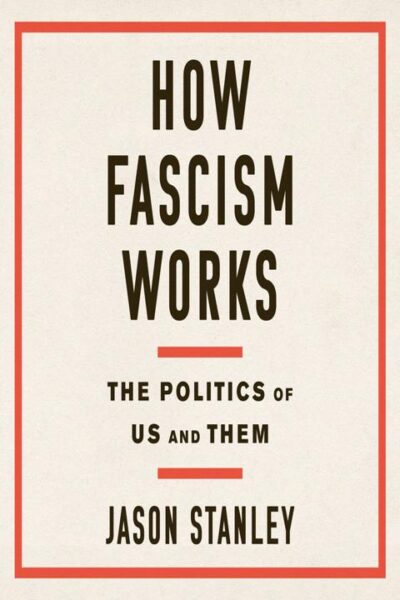 We’ve introduced this problem before but we should do so again in more depth. Logistics in modern armies is rather unlike logistics in pre-modern armies; to be exact the break-point here is the development of the railroad. Once armies can be supplied with railroads, their needs shift substantially. In particular, modern armies with rail (or later, truck and air) supply can receive massively more supplies over long distance than pre-railroad armies. That doesn’t make modern logistics trivial, rather armies “consumed” that additional supply by adopting material intensive modes of warfare: machine guns and artillery fire a lot of rounds that need to be shipped from factories to the front while tanks and trucks require a lot of fuel and spare parts. Basics like food and water were no less necessary but became a smaller share of much, much larger logistics chains that are dominated by ammunition and fuel.
We’ve introduced this problem before but we should do so again in more depth. Logistics in modern armies is rather unlike logistics in pre-modern armies; to be exact the break-point here is the development of the railroad. Once armies can be supplied with railroads, their needs shift substantially. In particular, modern armies with rail (or later, truck and air) supply can receive massively more supplies over long distance than pre-railroad armies. That doesn’t make modern logistics trivial, rather armies “consumed” that additional supply by adopting material intensive modes of warfare: machine guns and artillery fire a lot of rounds that need to be shipped from factories to the front while tanks and trucks require a lot of fuel and spare parts. Basics like food and water were no less necessary but became a smaller share of much, much larger logistics chains that are dominated by ammunition and fuel.
But in the pre-railroad era (note: including the early gunpowder era well into the 1800s) that wasn’t the case. Soldiers could carry their own weapons and often their own ammunition (which in turn put significant limits on both). For handheld weapons, the difference gunpowder made here was fairly limited, since muskets were fairly slow firing and soldiers had to carry the ammunition they’d have for a battle in any event. The major difference with gunpowder came with artillery (that is, cannon), which needed the cannon, their powder and shot all moved. The result was a substantial expansion of the “siege train” of the army, which did not change the structure of logistics but did place new and heavy demands on it, because the animals and humans moving all of that needed to be fed. But overwhelming all of that was food and, if necessary, water.
Adult men need anywhere from 2,000 to 3,200 calories per day in order to support their activity; soldiers marching under heavy load will naturally tend towards the higher end of this range. Now, these requirements can be fudged; as John Landers notes, soldiers who are underfed do not immediately shut off. On the other hand, they cannot be ignored for long: no matter the morale an undernourished army will struggle to perform. Starvation is real and does not care how many reps you could do or how motivated you were when the campaign started (in practice, armies that are not fed sufficiently dissolve away as men desert rather than starve).
Different armies and different cultures will meet that nutritional demand in different ways, but staple grains (wheat, barley, corn, rice) dominate rations in part because they also dominated the diet of the peasantry (being the highest calories-per-acre-farmed-and-labor-added foods) and because they were easy to move and store. Fruits and vegetables were, by contrast, always subject to local availability, since without refrigeration they were difficult to keep or move; meat at least could be smoked, salted or made into jerky, but its expense made it an optional bonus to the diet rather than the core of it. So the diet here is mostly bread; many armies reliant on wheat and barley agriculture came up with a fairly similar idea here: a dense but simple flour-and-water (and maybe salt) biscuit or cracker which if kept dry could keep for long periods and be easy to move. The Romans called this buccelatum; today we refer to a very similar modern idea as “hardtack“. However, because these biscuits aren’t very tasty, for morale reasons armies try to acquire actual bread where possible.
In practice the combination of calorie demands with calorie-dense grain-based foods is going to mean that rations tend to cluster in terms of weight, even from different armies. Spartan rations on Sphacteria were two choenikes of barley alphita (a course barley flour) per man per day (Thuc. 4.16.1) which comes out to roughly 1.4kg; Spartan grain contributions to the syssitia (Plut. Lyc. 12.2) were 1 medimnos of barley alphita per month, which comes out to almost exactly 1kg per day (but supplemented with meat and such). Both Roth and Erdkamp (op. cit. for both) try to calculate the weight of Roman rations based on reported grain rations and interpolations for other foodstuffs; Roth suggests a range of 1.1-1.327kg (of which .85kg was grain or bread), while Erdkamp simply notes that they must have been somewhat more than the .85kg grain ration minimum.1 The Army of Flanders was given pan de munición (“munition” or “ration” bread) made of a mix of wheat and rye in loaves of standard size; the absolute minimum ration was 1.5lbs (.68kg) per day (Parker, op. cit. 136), somewhat less than the more logistically capable (as we’ll see) Roman legions, but in the ballpark, especially when we remember that soldiers in the Army of Flanders often supplemented that with purchased or pillaged food. Daily U.S. Army rations during the American Civil War were around 3lbs (1.36kg; statistic via Engels (op. cit.) who inexplicably thinks this is a useful reference for Macedonian rations), but some of the things included (particularly the 1.6oz of coffee) were hardly minimum necessities; the United States much like the Romans has a well-earned reputation for better than average rations, though this is admittedly a low bar.
So we can see a pretty tight grouping here around 1kg, especially when we account for some of these ration-packages being supplemented by irregular but meaningful amounts of other foods (especially in the case of the Army of Flanders, where we know this happened). There is some wiggle room here, of course; marching rations like hardtack are going to be lighter per-day than raw grains or good bread (or other, even tastier foods). But once meat, vegetables and fruits – and the diet must be at least sometimes supplemented with non-grain foods for nutritional reasons – are accounted for, you can see how the rule of thumb around 3lbs or 1.36kg forms out of the evidence. Soldiers also need around three liters of water (which is 3kg, God bless the metric system) per day but we are going to operate on the hopeful assumption that water is generally available on the route of our march. If it isn’t our daily load jumps from 1.36kg to 4.36kg and our operational range collapses into basically nothing; in practice this meant that if local water wasn’t available an army simply couldn’t go there.2
Marching loads vary by army and period but generally within a range of 40 to 55kg or so (60 at the absolute upper-end). As you may well imagine, convincing soldiers to carry heavier loads demands a greater degree of discipline and command control, so while a general may well want to push soldier’s marching load up, the soldiers will want to push it down (and of course overloading soldiers is going to eventually have a negative impact on marching speed and movement capabilities). But you may well be thinking that 40-55kg (which is 90-120lbs or so) sounds more than ample – that’s a lot of food!
Except of course they need to carry everything and weapons, armor and (for gunpowder armies) shot are heavy. Roman soldiers were and are famous for having marched heavy, carrying as much of their equipment and supplies as possible in their packs, which the Romans called the sarcina (we’ll see why this could improve an army’s capabilities). This practice is often attributed to Gaius Marius in the last decade of the second century (Plut. Marius 13.1) but care is necessary as this sort of “reform” was a trope of Roman generalship and is used of even earlier generals than Marius (e.g. Plut. Mor. 201BC on Scipio Aemilianus). Various estimates for the marching load of Roman troops exist but the best is probably Marcus Junkelmann’s physical reconstruction (in Die Legionen des Augustus (1986); highly recommended if you can read German; alas for the lack of an English translation!) which recreated all of the Roman kit and measured a marching load of 54.8kg (120.8lbs), with ~43 of the 54.8kg reserved for weapons, armor, entrenching kit and personal equipment, leaving just 11.8kg for food (about ten days worth). Other estimates are somewhat less, but never much less than 40kg for a Roman soldier’s equipment before rations, leaving precious little weight in which to fit a lot of food.
The same exercise can be run for almost any kind of infantryman: while their load is often heavy, after one accounts for weapons, armor and equipment (and for later armies, powder and shot) there is typically little space left for rations, usually amounting to not more than a week or two (ten days is a normal rule of thumb). Since the army obviously has more than two weeks of work to do (and remember it needs to be able to march back to wherever it started at the end), it is going to need to get a lot more food.
Bret Devereaux, “Collections: Logistics, How Did They Do It, Part I: The Problem”, A Collection of Unmitigated Pedantry, 2022-07-15.
1. To be clear, we know with some certainty that Roman rations were supplemented, but not by how much. If you read much older scholarship, you will find the notion that Roman soldier’s diet lacked regular meat; both Erdkamp and Roth reject this view decisively and for good reason.
2. I may return to the logistics of water later, but some range can be extended here by taking advantage of the fact that pack animals, while they need a lot of water per day over a long period, can be marched short periods with basically no water and still function, whereas water deprived humans die very quickly. Consequently an army can do a low-water “lunge” over short distances by loading its pack animals with water, not watering them, having the soldiers drink the water and then abandoning the pack animals as they die (the water they carried having been consumed). This is, to say it least, a very expensive thing to do – animals are not cheap! – but there is some evidence the Romans did this, on this see G. Moss, “Watering the Roman Legion” M.A. Thesis, UNC Chapel Hill (2015).












